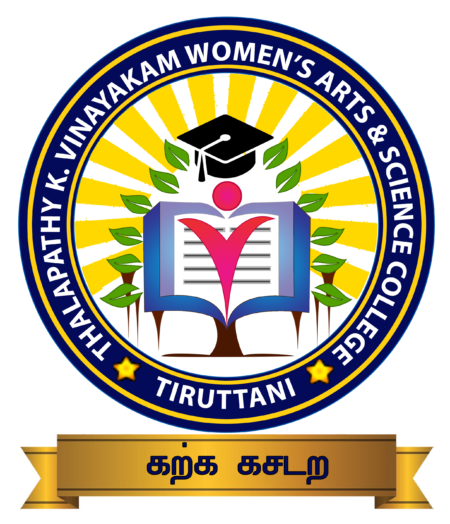Message from Head of the Department
Department of English established in the year 2019. We make students to communicate ideas and theories. Our Faculty members are committed to their profession. Our Departmental library has sufficient number of books for student’s circulation. we make students to do innovative tasks like cartoon summaries and Practical summaries of poems.
B.A. English: Syllabus and Description
Semester 1
- TAMIL -I
- ENGLISH-I
- CORE PAPER –I British Literature I
- CORE PAPER –II Indian Writing in English
- ALLIED PAPER–I Background to the Study of English Literature I
- SOFT SKILL- Language and Communication Level – I
- NME- Basic of Computer-I
Semester 2
- TAMIL- II
- ENGLISH- II
- CORE PAPER –III British Literature II
- CORE PAPER –IV Regional Indian Literature in Translation
- ALLIED PAPER–II Background to The Study of English Literature II
- SOFT SKILL- Language and Communication Level – I
- NME- Basic of Computer-II
Semester 3
- TAMIL- III
- ENGLISH-III
- CORE PAPER –V British Literature
- CORE PAPER –VI Modern English Language and Usage
- ALLIED PAPER-III- Myth and Literature
- PART IV NME-I Digital Literacy: Concepts and Skills
Semester 4
- TAMIL-IV
- ENGLISH-IV
- CORE PAPER –VII American Literature
- CORE PAPER –VIII Film and Literature
- ALLIED- IV Introduction to The Study of Language and Linguistics
- PART IV NME-II Indian Constitution
Semester 5
- CORE PAPER –IX American Literature II
- CORE PAPER –X Post-Colonial Literature in English I, Australian Literature
- CORE PAPER –XI Women’s Writing
- CORE PAPER – XII Introduction to Literary Theories
- CORE ELECTIVE –I Introduction to Translation Studies
- PART IV- Environmental Studies
Semester 6
- CORE PAPER – XII Contemporary Literature
- CORE PAPER – XIII POST – Colonial Literature in English II Canadian Literature
- CORE PAPER – XIV SHAKESPEARE
- CORE PAPER – XV-World Literature in Translation
- CORE ELECTIVE – III Journalism
- PART IV- Value Education
Course Highlights
| Course Level | Undergraduate |
| Duration | 3 years |
| Examination Type | Semester system |
| Eligibility | 10+2 with ALL subjects |
| Admission Process | Merit-based |
| Higher Studies | M.A. English, M.A. Journalism, B.Ed in English, Central Level Studies (IAS, IPS UPSC), State Level Studies (TNPSC) |
| Placement Opportunities | Teacher/ Lecturer, Dramatist/ Novelist, News Reader, Journalist, Film Director, Translator, Call Centre Executive |
Program Outcomes
- Have Knowledge of the basic concepts, theories, and perspectives important to English studies, including rhetorical, interpretive, historical, cultural, social approaches to language and texts
- Understand the ways in which texts can reflect or shape the representation of historical and cultural circumstances
- Recognize rhetorical, generic traditions and innovations
- Apply critical and theoretical approaches to the reading and analysis of literary and cultural texts in multiple genres
- Students should be able to ethically gather, understand, evaluate and synthesize information from a variety of written and electronic sources
Program Specific Outcomes
- Write analytically in a variety of formats, including essays, research papers, reflective writing and critical reviews of secondary sources
- To be proficient in oral and written communication
- To provide students the critical faculties necessary in an academic environment, on the job, and in an increasingly complex, interdependent world
Course Outcome
The graduate will
- Inculcate English language through the study of literature and other contemporary forms of culture
- Read, perform, analyze and critically appreciate literary and cultural texts from different historical periods and genres
- Identify, employ, and interpret the literary and rhetorical methods and strategies that inform English as a discipline in their reading and writing of texts
- Have the ability to analyze the ways in which written texts both reflect and help to construct social categories such as race, class, gender, and sexuality
Faculty
| NAME | QUALIFICATION | POSITION |
